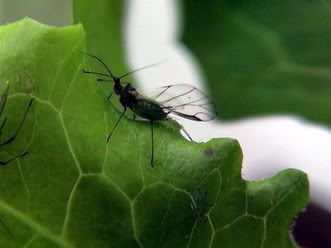
Today integrated pest management (IPM) is of particular interest to Americans in CEA because of the paucity of pesticides with legal clearance for use in greenhouses. The frightening ability of some pests to develop resistance to chemical pesticides has revived worldwide interest in the use of natural enemies of insect pests, particularly when used in association with horticultural practices, genetics and other control mechanisms. Tomorrow's growers may be growing crops without applying any chemicals to control diseases and insects. Crop production requires both the identification of possible crop disease and insect problems, and the ability to properly integrate disease and insect prevention and control practices into a total management plan.












